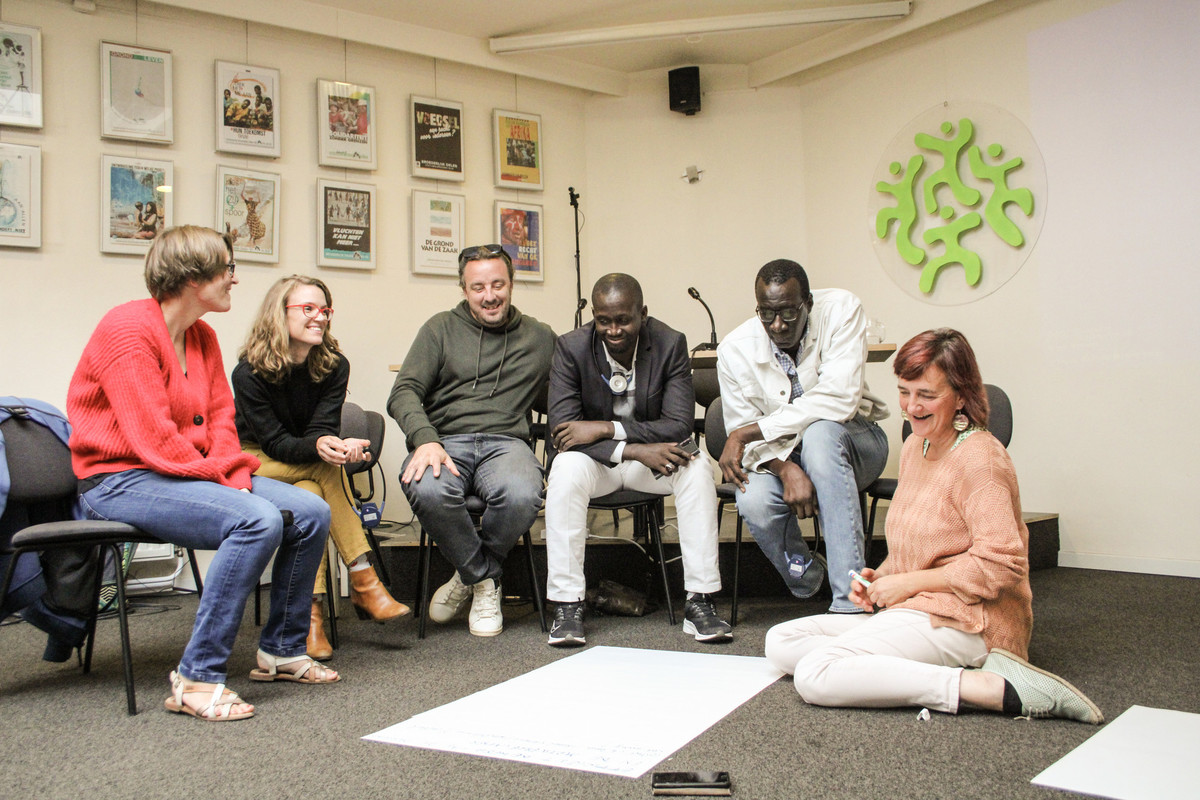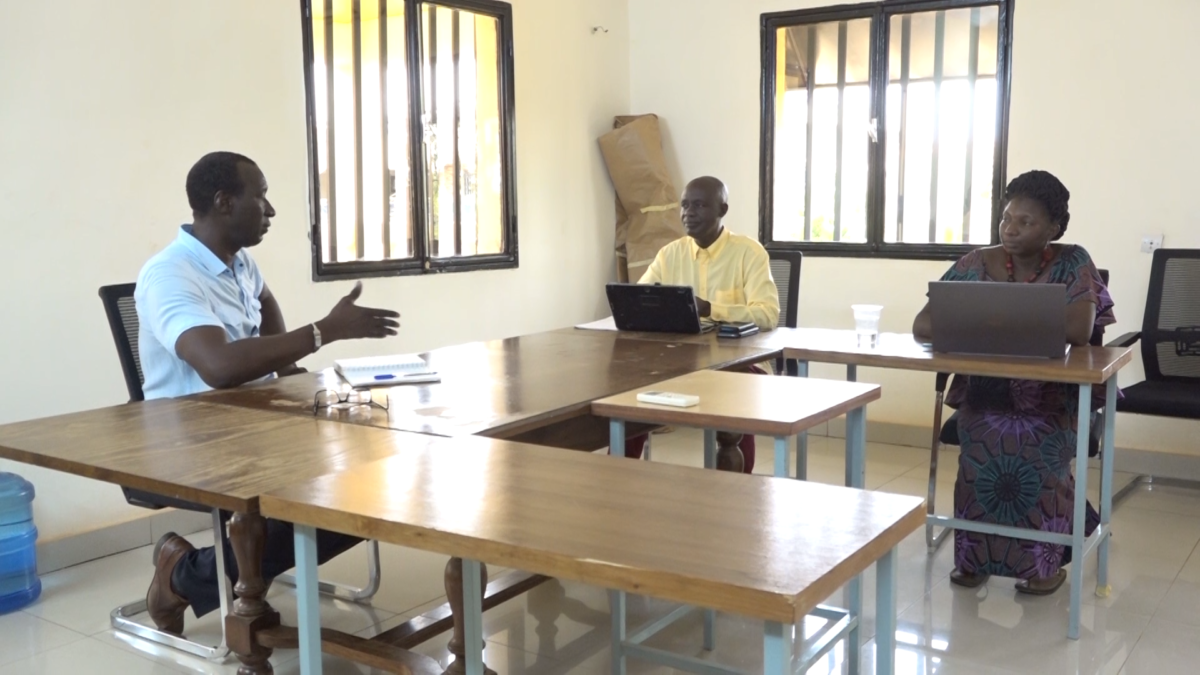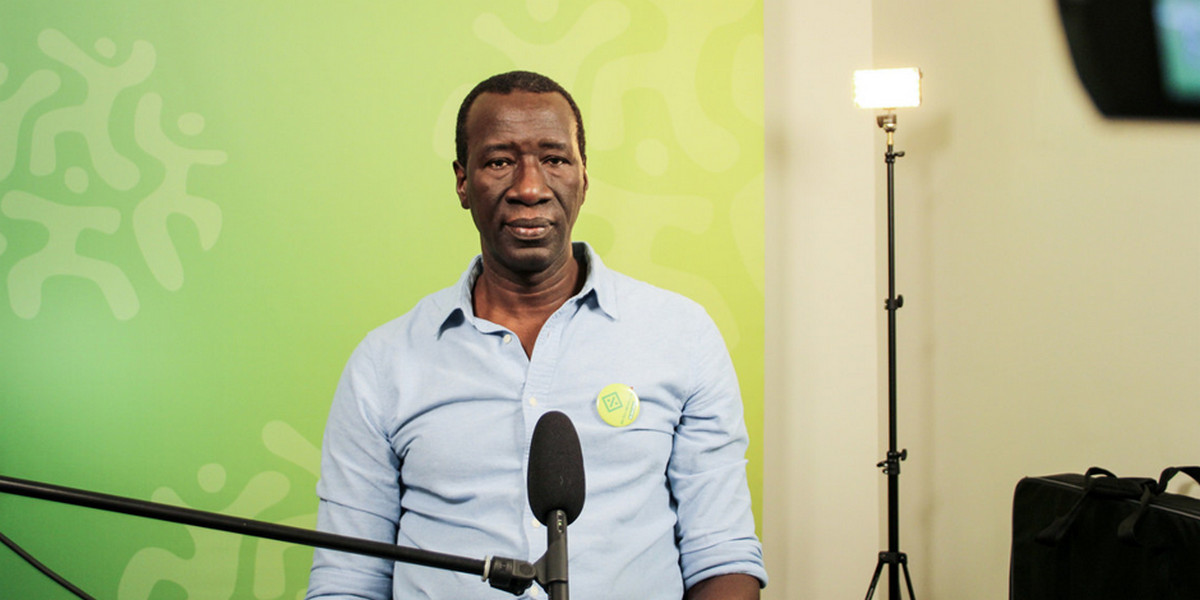Broederlijk Delen in conversation with Tocoma Sy on decolonisation
This article was originally published in Dutch on the website of Broederlijk Delen, CIDSE’s Flemish member organisation. They had a conversation on decolonisation with Tocoma Sy, their Country Representative in Burkina Faso.
Tocoma Sy has been Broederlijk Delen’s country representative in Burkina Faso since 2019. The Senegalese is the perfect person to engage in conversations about decolonisation. He regularly exchanges ideas on this topic with young people and Broederlijk Delen’s partners in Burkina Faso. Prepare yourself for a nuanced conversation in which we will look at the past, the present and, of course, the future.
What colonialism essentially is
“I think colonialism was born out of capitalism, because an economy that has to keep growing has an insatiable appetite for raw materials. The countries of the global South turned out to be rich in these raw materials and so were reduced to suppliers. The European states established a colonial structure to import the raw materials as cheaply as possible.”
“This was justified by pseudo-sciences, such as Social Darwinism and racial theories. These created a hierarchy of human-beings: white people were considered superior and black people inferior. These ideas were also supported in churches and in so-called ‘human zoos’. Thousands of European families went on a Sunday outing to see savages living in huts. These ideas became dominant not only in Europe, but also widely spread in African countries.”
“Colonialism not only led to the well-known theft of natural resources, but also swept away ancient local cultures. Absurd borders were created, existing customs and structures eliminated, civilisations destroyed and people exterminated or enslaved.”
“We cannot recover this cultural richness, it has been destroyed forever,” stresses Tocoma. “The most distressing thing is that we can hardly remember what our culture was like before colonisation.”
“Colonialism not only led to the well-known theft of natural resources, but also swept away the ancient local cultures. “
Time for new relationships
“A new intellectual elite gradually emerged in Africa in search of greater autonomy. This elite was aware of the huge gap that existed between their reality and how Africans were written about in books. Under their influence, colonised African countries became politically independent in the 1960s, usually after a fierce struggle.”

“But colonial relations continued even after their independence, including through trade, financial and economic policies. This allowed Western countries and institutions to continue to have influence, for example by lending money to countries in the Global South and then making demands. Multinational mining and agribusinesses companies were also able to make a lot of money without sharing it with local people.”
“Young people have more access to knowledge thanks to social media, so they are demanding more rights and equality. “
“But change is afoot,” says Tocoma. “Information used to be for the elite only, but thanks to digital transformation, it is possible to share information with everyone. Information in the local language is reaching everyone through videos and social media. Because young people are more knowledgeable, they are demanding more rights and equality, and they are rebelling against foreign domination.”
“Although we should be concerned about fake news, which also capitalises on this discontent. Some young people are misinformed and see the Russians, for example, as saviors rather than new colonisers. For example, the current events in the Sahel, with several coups in Gabon and Burkina Faso, among others, are the result of a military elite taking advantage of social discontent.”
Decolonisation is about changing structures and acting
“The outcome should be a more equal and respectful system. Not just a change of masters. Power has to be redistributed. We have to relate to each other as equal partners.”
“It should be clear that decolonisation is not just about using different words, but about changing structures and acting accordingly.”
“Decolonisation is ultimately about systemic change: changing the balance of power, but also changing the role of government. With more attention to the voice of the people and fewer rules written to suit corporations.”

for Broederlijk Delen. The beginning of an organisation-wide process. © Broederlijk Delen.
“Today, Broederlijk Delen is in much closer dialogue with our partners. “
Decolonisation and Broederlijk Delen
“Broederlijk Delen has been thinking about decolonisation for several years. We are in much closer dialogue with our partners, but we really need to change the way we work together,” says Tocoma. “It is essential that Broederlijk Delen listens first and foremost to the people and partner organisations on the ground: what are their needs and how can we build on them together? Equal partnerships are, of course, about resources. If one finances the other, there is still an imbalance of power. How we as Broederlijk Delen deal with this is an important challenge.”

The pitfalls to decolonisation
“What we absolutely must not do is to turn in on ourselves. We all live on planet Earth, so we must continue to dialogue and cooperate with each other. Europe cannot afford to crawl back into its shell, and Africa cannot do it on its own. We have to do it together, with all the countries of the world.”
For Tocoma and Broederlijk Delen, decolonisation clearly means a different way of working. To improve its operations, Broederlijk Delen is exploring how to work in a more decolonial way in areas such as partnerships, communication, international movements and decision-making structures.
| CIDSE’s approach to decolonising systems of power Decolonising systems of power is one of CIDSE’s five cross-cutting systemic lenses in our Strategic Framework (2023-2028) and will guide all our thematic work and objectives in the coming years. In the long term, we want to see political and decision-making systems rooted in people’s sovereignty and self-determination. To achieve this, communities and civil society organisations (CSOs) from the Global South need to be supported in their struggle for justice and dignity. They need to have increased access to and participation in political spaces and be in a better position to operate ctions independently of CSOs in the Global North. This also requires CSOs in the Global North to develop their actions in co-shaping with CSOs in the Global South. Our systemic focus on decolonising systems of power is the result of an ongoing process, with our members, partners and allies, in which we have started to question and challenge the practices of our own network, recognising that change starts with us. This involves working together on difficult and uncomfortable issues, across organisational boundaries, and having the courage to challenge power structures and move away from a North-South paradigm. During various CIDSE systemic change gatherings, we have started to reflect on decolonising attitudes, challenging colonial narratives and our own global partnerships. This can first be achieved by clearly analysing the root causes of colonial narratives. Engaging in transformative partnerships requires strengthening and deepening partnerships based on mutual respect, listening, sharing of power, space and trust, and promoting localised/local leadership in policy arena(s) and decision-making. In the coming years, together with our members, we will continue to challenge ourselves to address issues of power and decolonisation in our own language, analysis and practice, while also building capacity, and strengthening our network to maximise the impact of our collective voice. |
“International solidarity is about equal partnership and shared responsibility. International solidarity is not unidirectional; it is an act of unity between allies fighting for a common cause. Equality in our partnerships should be self-evident and the mindset of all our human and institutional interactions. “
Lieve Herijgers, Director of Broederlijk Delen, former CIDSE President,
during the 2nd CIDSE Systemic Change Forum in June 2021.
Additional information
Broederlijk Delen will organise a webinar on decolonisation in Burkina Faso with Tocoma Sy on 7 March 2024.
Cover photo: Tocoma Sy, Broederlijk Delen’s country representative in Burkina Faso. Credit: Broederlijk Delen

